Choir of The King’s Consort, The King’s Consort & Robert King - Vivaldi: The Complete Sacred Music (2005)
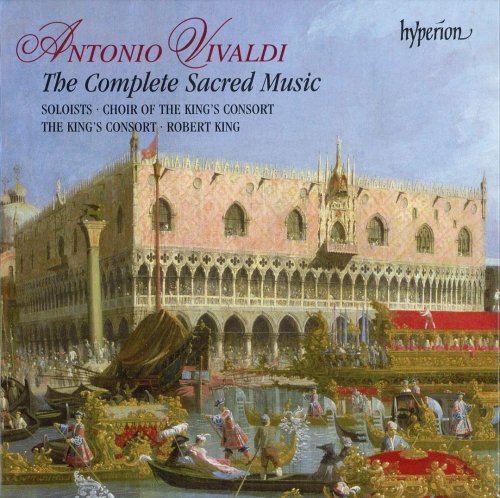
Artist: Choir of The King’s Consort, The King’s Consort & Robert King
Title: Vivaldi: The Complete Sacred Music
Year Of Release: 2005
Label: Hyperion
Genre: Classical
Quality: FLAC (image + .cue, log, artwork)
Total Time: 12:52:56
Total Size: 3.29 GB
WebSite: Album Preview
Title: Vivaldi: The Complete Sacred Music
Year Of Release: 2005
Label: Hyperion
Genre: Classical
Quality: FLAC (image + .cue, log, artwork)
Total Time: 12:52:56
Total Size: 3.29 GB
WebSite: Album Preview
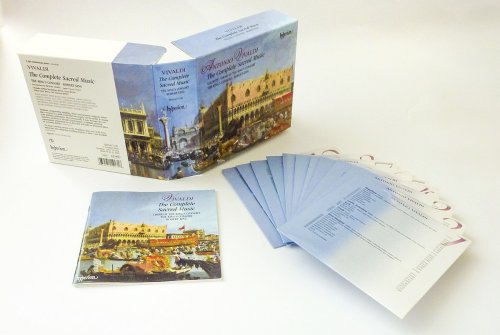
The existence of a significant corpus of sacred music by Antonio Vivaldi first came to light in the 1920s, when a collection of manuscripts was discovered in the National Library of Turin. Over 50 of his works have survived and the existence of many others has been documented. What is unusual about this is that Vivaldi never held a position that required him to compose sacred music, and other cleric-composers turned their back on the genre altogether. Furthermore, as annotator Michael Talbot observes, “it was difficult to conceive of circumstances in which he would have been asked to provide such music in bulk.”
In 1713, Francesco Gasparini, the maestro di coro at the Ospedale della Pietà in Venice where Vivaldi was employed, took a leave of absence, and a permanent one at that. Six years later, the post was still vacant; Vivaldi and another of his colleagues were asked to fill Gasparini’s shoes. Their job was to provide the singers with a river of sacred repertoire (motets, psalm settings, and the like) that would persuade the moneyed populous of Venice to attend performances in the chapel of the Pietà, and perhaps encourage them to make substantial donations and requests to the institution.
Because of restrictions imposed by the administration of the Ospedale, only a trickle of the scared music composed between 1713 and 1719 found its way outside the institution. Some of it did grow legs, however, and found its way to the domain of the Hapsburgs when one Balthasar Knapp acquired several manuscripts before returning to Prague. Again quoting Michael Talbot, this collection “appears to have been the nucleus of a modest Vivaldi cult which flourished in such centres as Prague, Osek , Brno, and even Breslau.” Thanks to Bach’s Czech contemporary, Jan Dismas Zelenka, some of Vivaldi’s sacred music made its way to Dresden, the seat of the Elector of Saxony and King of Poland, Augustus the Strong.
Initially, one may be tempted to compare Vivaldi’s sacred music to that of Bach, but why? Even though both composers were deeply moved by their spirituality and wrote music on a truly inspired level, their styles and forms are different, dictated as they were by the environs and circumstances in which the two men labored, e.g., Vivaldi’s motets are for solo voice and orchestra, while Bach’s follow the North German prototype by using a chorus and continuo. Without casting aspersions upon Vivaldi’s efforts, Bach was unquestionably the better composer, but Vivaldi, too, was capable of writing deeply emotional, dramatic, and moving music, as one finds in the oratorio Juditha Triumphans, RV 644, and in the Agnus Dei of the Gloria in excelsis Deo, RV 589.
The heading for this review has been abbreviated, for if it were printed in the manner normally found in Fanfare, the text and associated superscripts would fill almost half a page, and it would also create a maze of information that would require a map for clarification, so I’ll comment only briefly on the history of the 11 recordings and list the most recognizable of the performers. Originally released between 1994 and 2003, the CDs that make up this collection include some of the most respected early-music soloists in the industry, including Susan Gritton, Catherine Denley, Nathalie Stutzman, Robin Blaze, James Bowman, and Michael George.
Robert King and his ensemble, collectively known as The King’s Consort, have recorded almost 100 CDs for Hyperion. Their catalog includes vocal, instrumental, orchestral, and choral works, including four CDs of sacred music by Bach’s contemporaries. Most recently, they have embarked upon a cycle of the sacred music of Claudio Monteverdi that promises to be as musically rewarding as their previous efforts. But let’s get back to the recordings at hand.
Sometimes in anthologies such as this that are recorded over a number of years using a variety of soloists, one can find inconsistencies, some of which are minor while others are as obvious as the nose on one’s face. However, no such problems exist in Robert King’s traversal of Vivaldi’s sacred music. In fact, there is an amazing degree of consistency from disc to disc. First, the singing by the soloists is ravishingly beautiful, displaying impeccable enunciation, wholesome tone, and deeply felt emotion. When virtuosity is required, vocal agility is on the mark, with melismatic phrases distinguished by a lightness of touch and with each note perfectly centered. The marvelous blend, ease of execution, and enviable control of the chorus combine to make it the envy of others and one of the best around. Orchestral playing is animated and exciting in places, but always evincing a keen feel for the text being supported.
In conclusion, King has given us the ultimate Vivaldi anthology, abundant in energy, rich with emotion, animation, and color, and enshrined in Hyperion’s fabled, warm, and incomparable sound. ~ FANFARE: Michael Carter
In 1713, Francesco Gasparini, the maestro di coro at the Ospedale della Pietà in Venice where Vivaldi was employed, took a leave of absence, and a permanent one at that. Six years later, the post was still vacant; Vivaldi and another of his colleagues were asked to fill Gasparini’s shoes. Their job was to provide the singers with a river of sacred repertoire (motets, psalm settings, and the like) that would persuade the moneyed populous of Venice to attend performances in the chapel of the Pietà, and perhaps encourage them to make substantial donations and requests to the institution.
Because of restrictions imposed by the administration of the Ospedale, only a trickle of the scared music composed between 1713 and 1719 found its way outside the institution. Some of it did grow legs, however, and found its way to the domain of the Hapsburgs when one Balthasar Knapp acquired several manuscripts before returning to Prague. Again quoting Michael Talbot, this collection “appears to have been the nucleus of a modest Vivaldi cult which flourished in such centres as Prague, Osek , Brno, and even Breslau.” Thanks to Bach’s Czech contemporary, Jan Dismas Zelenka, some of Vivaldi’s sacred music made its way to Dresden, the seat of the Elector of Saxony and King of Poland, Augustus the Strong.
Initially, one may be tempted to compare Vivaldi’s sacred music to that of Bach, but why? Even though both composers were deeply moved by their spirituality and wrote music on a truly inspired level, their styles and forms are different, dictated as they were by the environs and circumstances in which the two men labored, e.g., Vivaldi’s motets are for solo voice and orchestra, while Bach’s follow the North German prototype by using a chorus and continuo. Without casting aspersions upon Vivaldi’s efforts, Bach was unquestionably the better composer, but Vivaldi, too, was capable of writing deeply emotional, dramatic, and moving music, as one finds in the oratorio Juditha Triumphans, RV 644, and in the Agnus Dei of the Gloria in excelsis Deo, RV 589.
The heading for this review has been abbreviated, for if it were printed in the manner normally found in Fanfare, the text and associated superscripts would fill almost half a page, and it would also create a maze of information that would require a map for clarification, so I’ll comment only briefly on the history of the 11 recordings and list the most recognizable of the performers. Originally released between 1994 and 2003, the CDs that make up this collection include some of the most respected early-music soloists in the industry, including Susan Gritton, Catherine Denley, Nathalie Stutzman, Robin Blaze, James Bowman, and Michael George.
Robert King and his ensemble, collectively known as The King’s Consort, have recorded almost 100 CDs for Hyperion. Their catalog includes vocal, instrumental, orchestral, and choral works, including four CDs of sacred music by Bach’s contemporaries. Most recently, they have embarked upon a cycle of the sacred music of Claudio Monteverdi that promises to be as musically rewarding as their previous efforts. But let’s get back to the recordings at hand.
Sometimes in anthologies such as this that are recorded over a number of years using a variety of soloists, one can find inconsistencies, some of which are minor while others are as obvious as the nose on one’s face. However, no such problems exist in Robert King’s traversal of Vivaldi’s sacred music. In fact, there is an amazing degree of consistency from disc to disc. First, the singing by the soloists is ravishingly beautiful, displaying impeccable enunciation, wholesome tone, and deeply felt emotion. When virtuosity is required, vocal agility is on the mark, with melismatic phrases distinguished by a lightness of touch and with each note perfectly centered. The marvelous blend, ease of execution, and enviable control of the chorus combine to make it the envy of others and one of the best around. Orchestral playing is animated and exciting in places, but always evincing a keen feel for the text being supported.
In conclusion, King has given us the ultimate Vivaldi anthology, abundant in energy, rich with emotion, animation, and color, and enshrined in Hyperion’s fabled, warm, and incomparable sound. ~ FANFARE: Michael Carter
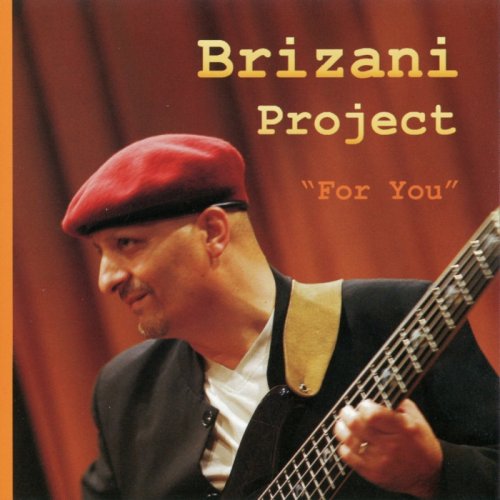
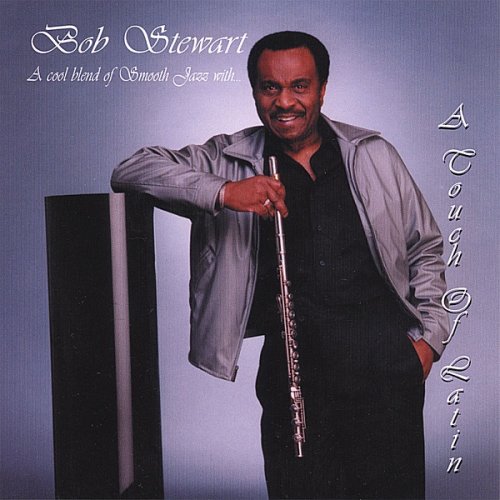
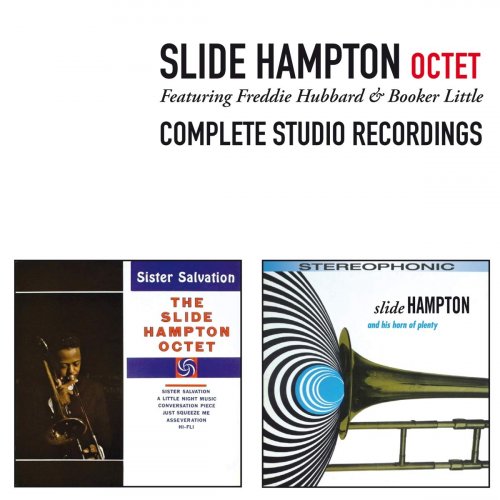
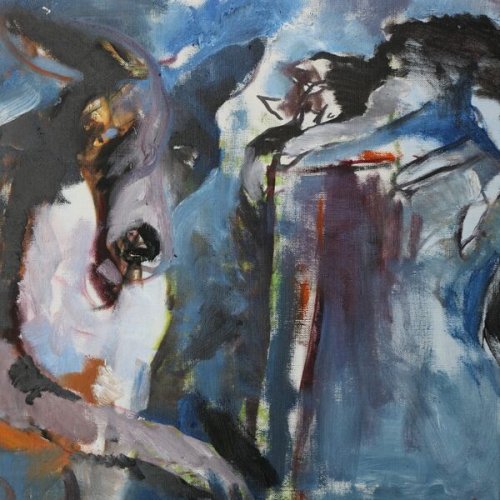

![Hyper Elastic Jinx - We Vote Force Majeure (2026) [Hi-Res] Hyper Elastic Jinx - We Vote Force Majeure (2026) [Hi-Res]](https://www.dibpic.com/uploads/posts/2026-02/1771485115_cover.jpg)
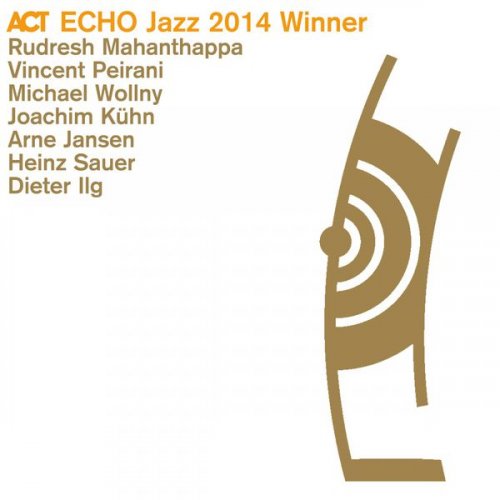
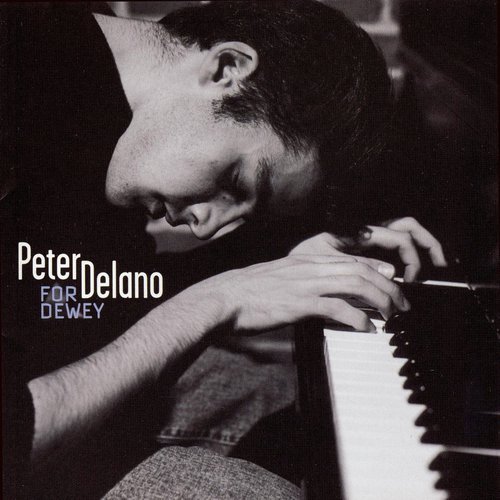
![Sababa 5 - Ça va Ça va (2026) [Hi-Res] Sababa 5 - Ça va Ça va (2026) [Hi-Res]](https://img.israbox.com/img/2026-02/19/fjh6s1r25i49g9yulzp8ivi4c.jpg)